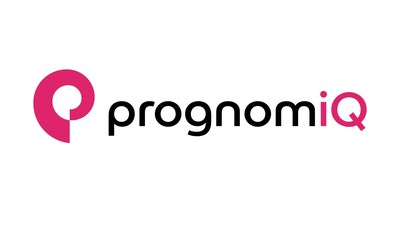PrognomiQ today announced promising results from the largest, deep multi-omics study conducted to date.
|
– Multi-omics Blood-Based Biomarkers in Lung Cancer Reveal High Performance in Early Detection – SAN MATEO, Calif., Jan. 8, 2024 /PRNewswire/ -- PrognomiQ – a healthcare company focused on harnessing the power of multi-omics data to transform the early detection, treatment selection and recurrence monitoring of cancer and other complex diseases – today announced promising results from the largest, deep multi-omics study conducted to date. The study, published online in medRxiv, focused on subjects at risk for lung cancer, demonstrating the power of multi-omics to deliver both high sensitivity and high specificity in the detection of early-stage lung cancer. These encouraging data stem from a 2,513-subject case-control study which analyzed the molecular differences between the peripheral blood plasma of lung cancer subjects and non-cancer controls, many of whom were at high-risk for lung cancer. The study used a statistical classifier based on identified molecular features that demonstrated high performance in all stages of detection, including early-stage disease. Given the focus on high-risk populations in this study, the team focused on prioritizing high sensitivity, particularly for early-stage cancer. The research demonstrated:
Lung cancer is the leading cause of cancer-related deaths worldwide, with 238,340 new cases and 127,070 deaths estimated in the United States in 2023. The current standard of care, for the over 14 million high-risk individuals in the U.S. eligible for lung cancer screening, is low-dose computed tomography (LDCT) scanning. Although these screening recommendations were originally made in 2013, LDCTs remain underutilized, with low adherence rates of less than 10% due to a number of factors at both the patient and provider level, including having a wide range in the reported sensitivity and specificity performance as well as high false-positivity of LDCT tests. "The unmet need for early detection through convenient and accessible modalities is exceptionally high, particularly for early-stage lung cancer that is both highly treatable and potentially curable," said Brian Koh, Chief Medical Officer of PrognomiQ. "These latest findings further validate the power of our platform to discover new biology and biomarkers and to transform the performance of liquid biopsy tests using a multi-omics approach. Given the current adoption challenges of LDCT scanning, a blood-based test to detect lung cancer with high sensitivity and specificity performance, particularly at the early stages, could dramatically improve lung cancer screening rates. We're truly excited about the opportunities to transform the detection and treatment of lung cancer." These findings add to the body of research previously presented in 2023 on lung cancer detection at both the American College of Chest Physicians (CHEST) and the World Conference on Lung Cancer (WCLC), and on pancreatic cancer detection at the American Association of Cancer Research (AACR) annual conferences. PrognomiQ is currently enrolling a prospective 15,000 subject study in lung cancer initiated in 2023 to support registration. Additionally, the company was recently granted a Clinical Laboratory Improvement Amendment (CLIA) license, which will further enable development of an early detection test for lung cancer. PrognomiQ's proprietary approach leverages cutting-edge technologies, including Seer's Proteograph™ Product Suite, which enables collection of deep, unbiased proteomics data. In addition to proteomics, PrognomiQ interrogates the range of data from genotype to phenotype including cell-free DNA, RNA, metabolites, and lipids to identify potential biomarkers of significance. The combination of proteomic data with genomic, metabolomic, epigenomic, and transcriptomic data provides unparalleled levels of novel biological insights which could lead to transformative new approaches to diagnostic and therapy development. Seer CEO Omid Farokhazad will be highlighting PrognomiQ's multi-omics lung cancer study as part of Seer's presentation at the J.P. Morgan Healthcare Conference on Wednesday, January 10th at 3:00 p.m. (Pacific Time)/6:00 p.m. (Eastern Time). About PrognomiQ: Media Contact
SOURCE PrognomiQ |





